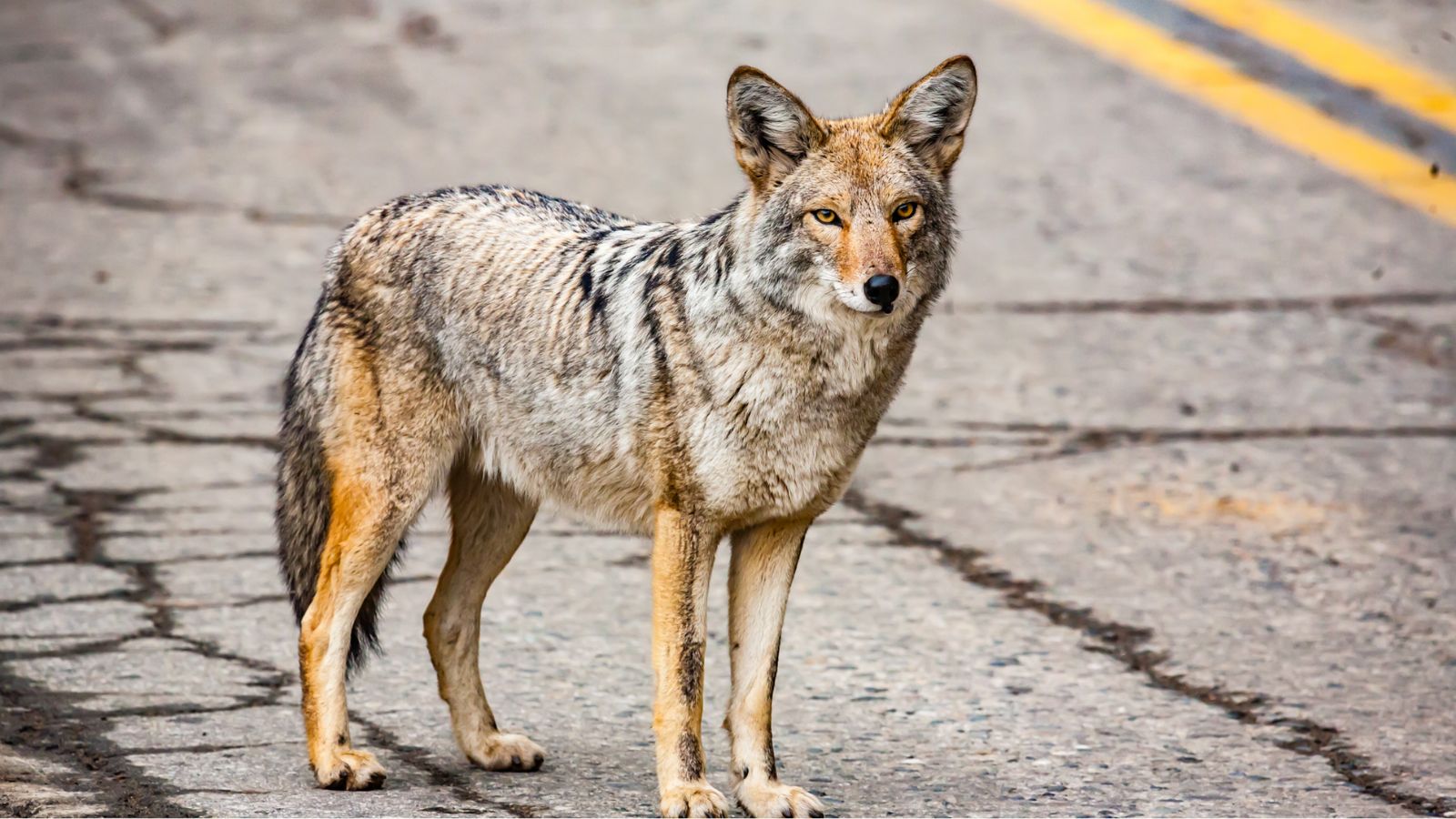Some people might think that a coyote is a fascinating, mostly harmless animal. After all, they don’t look like much of a threat compared to bears and mountain lions. However, here are 17 reasons why you should stay far away from coyotes, as they can be more dangerous than you’d expect.
They Attack Pets
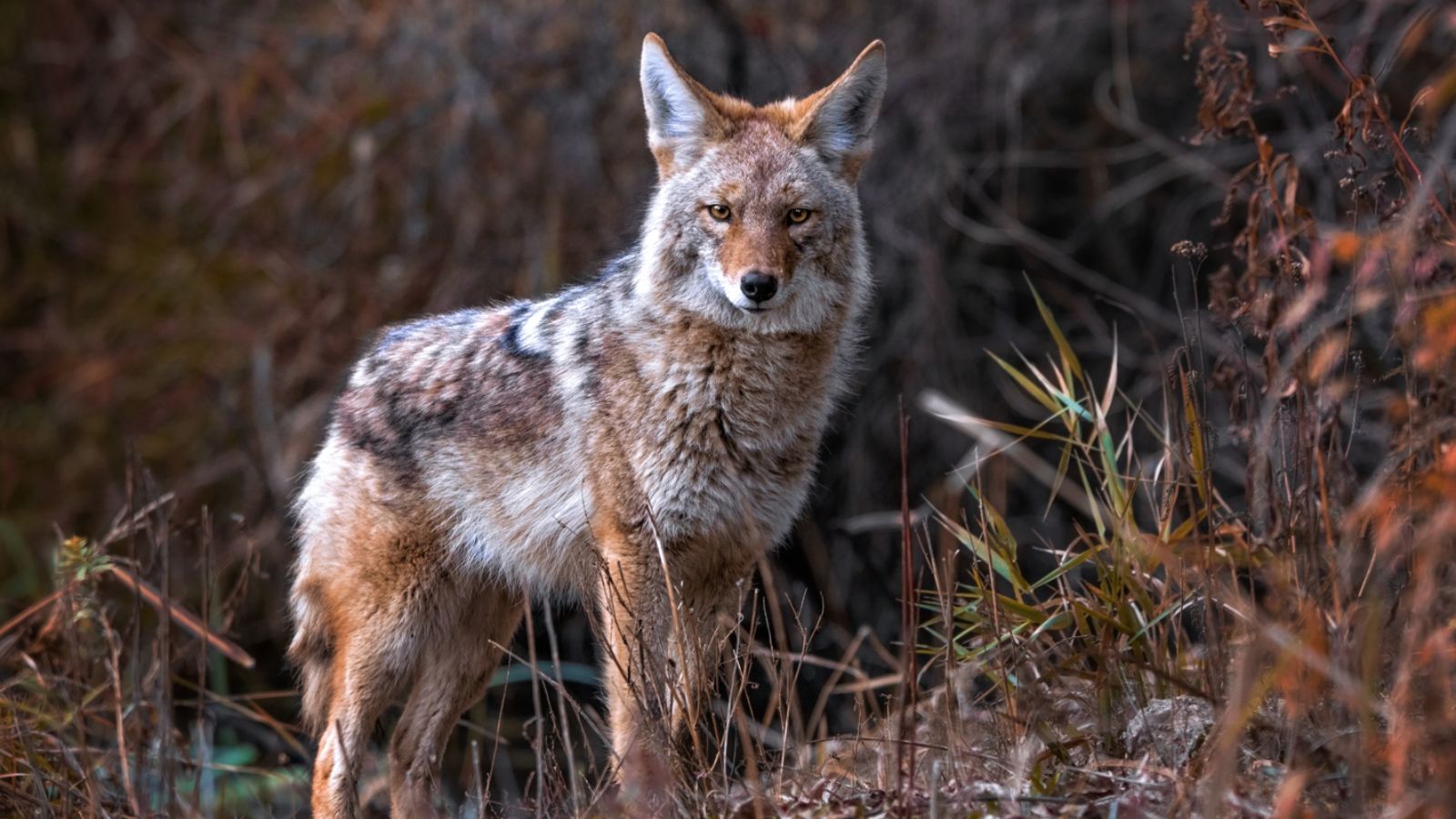
The American Kennel Club advises, regarding coyotes, that “our pets can become prey for these predators.” If you leave dogs and cats outside at night, they may be lured away and attacked by coyotes. Keep your pets safe and indoors or in a securely fenced area.
Their Aggressive Behavior
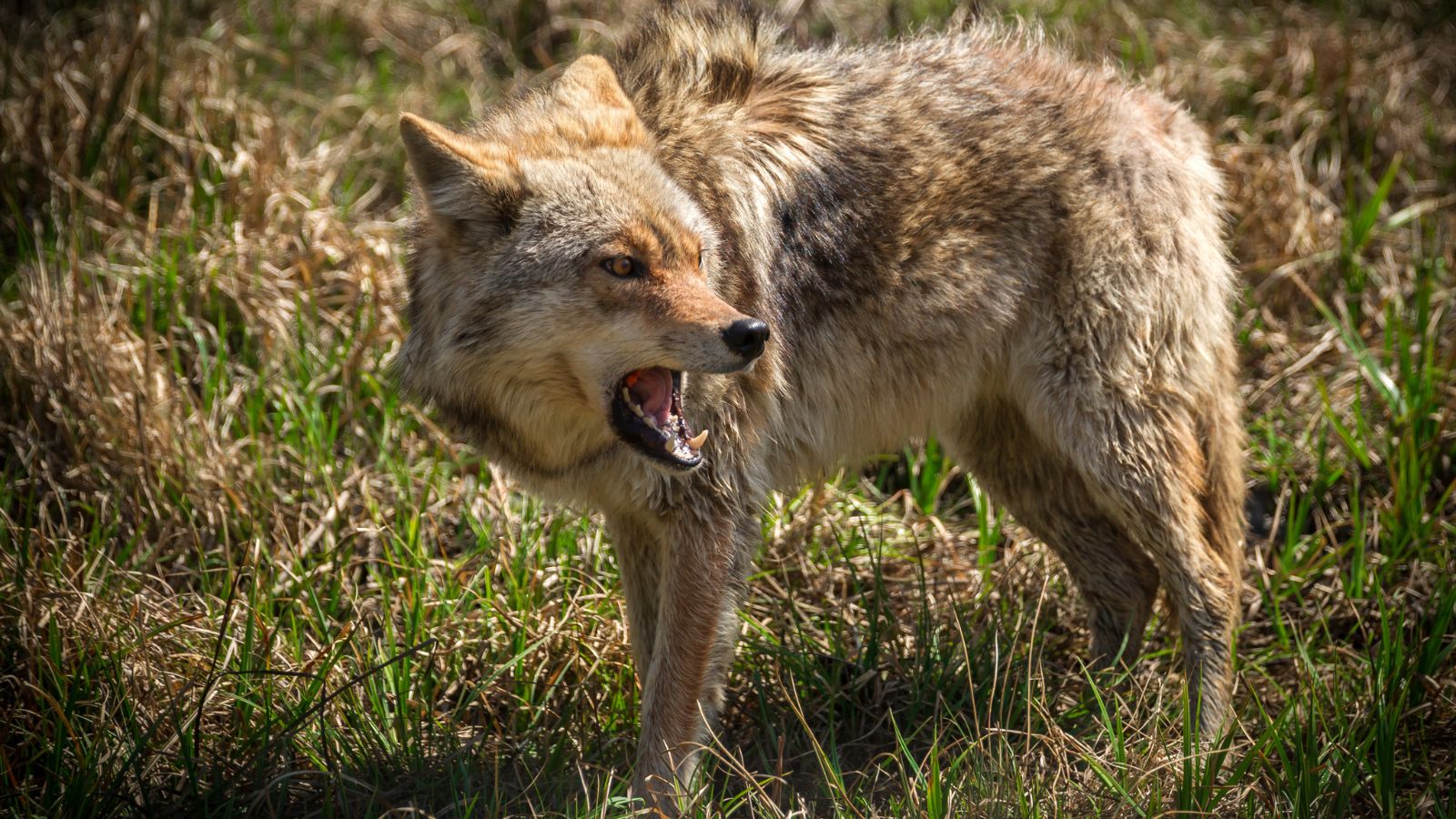
One reason coyotes attack pets, and sometimes humans is that they can feel threatened by larger animals. This is especially the case for female coyotes protecting their pups. They can be very aggressive, and this can lead to attacks, so it’s best to stay away.
They Carry Diseases
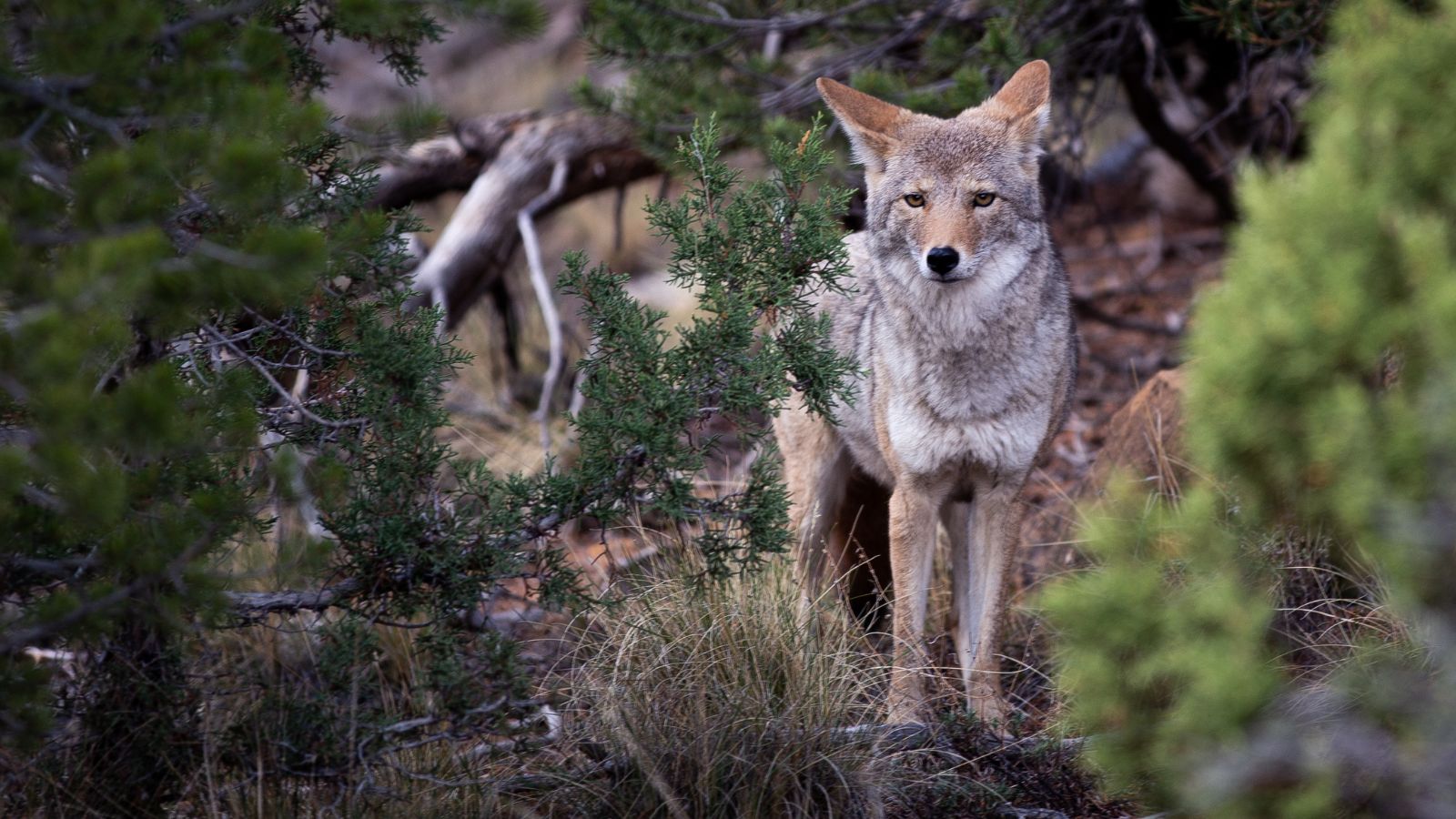
There are many diseases that coyotes can carry and pass on to either you or your pets. Some of these include rabies, canine distemper, and parvovirus. They can also carry fleas and ticks, which can then give you diseases such as Lyme disease.
They Prey On Livestock
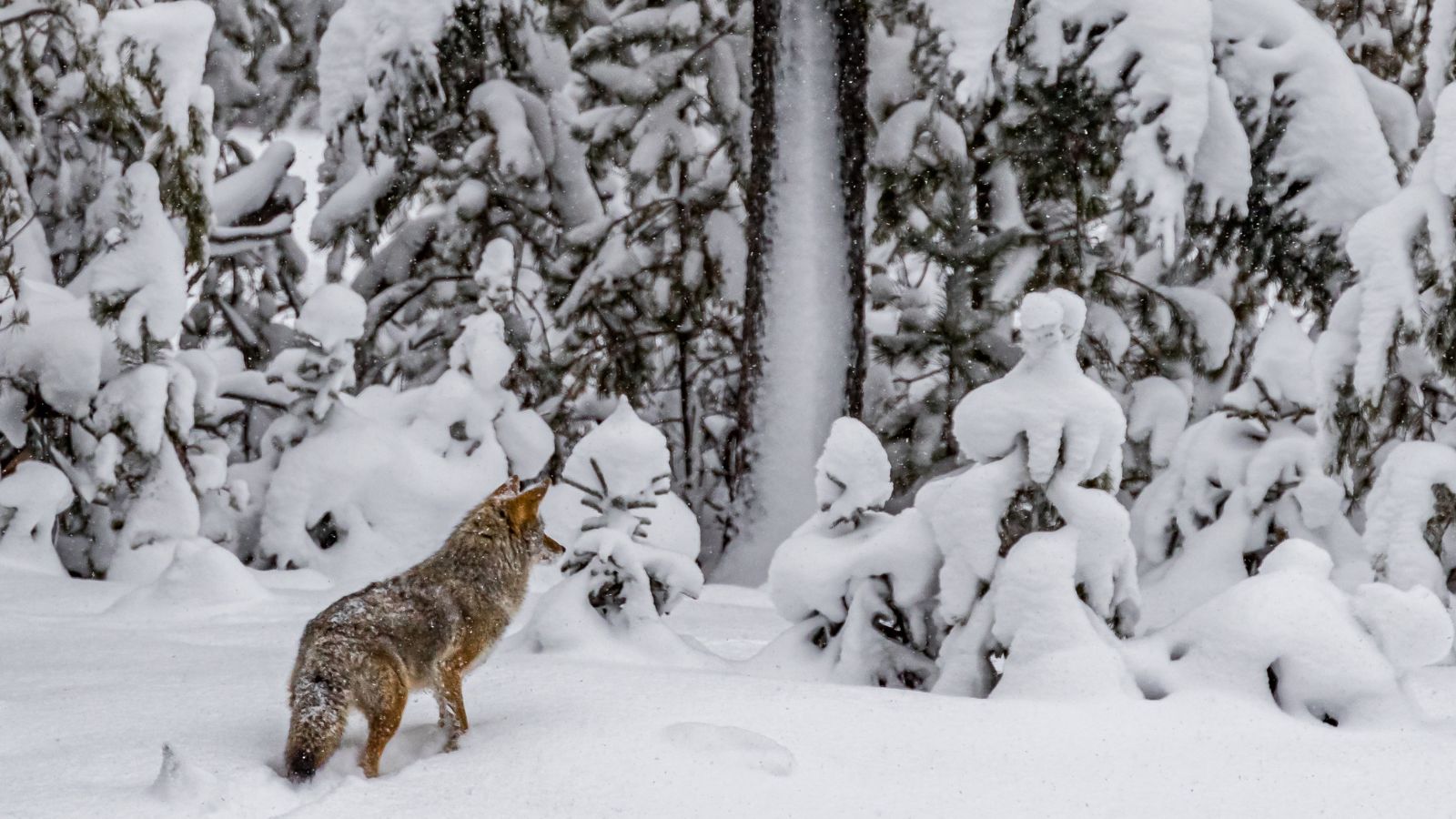
Farmers will want to make sure that their livestock enclosures or fields are as coyote-proof as possible. These wild animals are known to attack and kill livestock, such as lambs, young calves, and chickens. This can be devastating for a farm, so keeping coyotes at bay is crucial.
They Can Damage Property
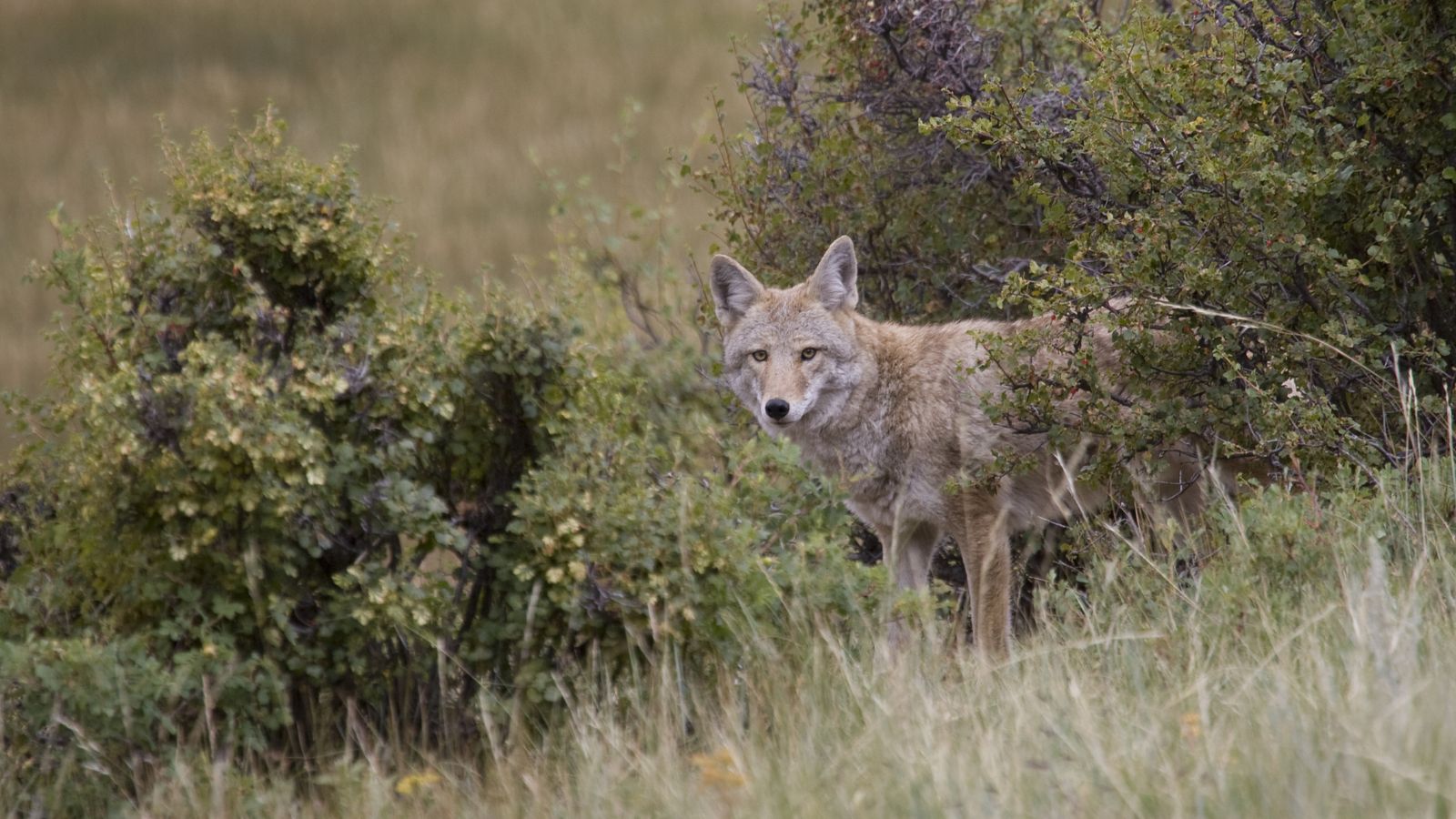
It’s not just coyote attacks that you need to watch out for. They can also dig under fences, causing structural damage to your property, and can overturn and damage trash cans and compost bins while looking for food. A nighttime visit from a coyote can quickly become an expensive matter.
They’re Increasingly Seen In Towns And Cities
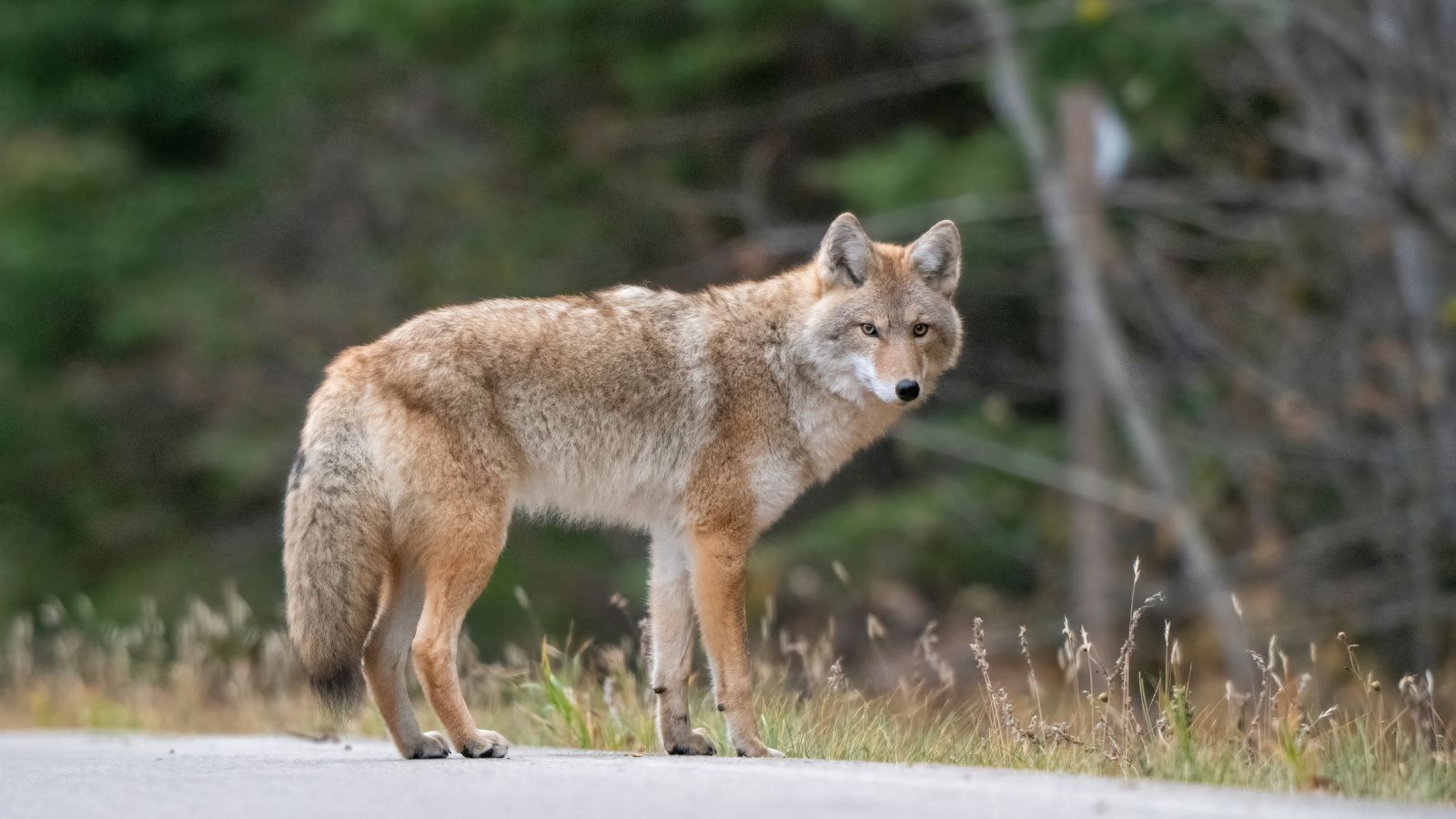
There have been increasing sightings of coyotes in urban areas recently, and they can quickly turn dangerous. According to CBC, “coyotes move into cities in part because it gives them the best chance at survival.” But being so close to humans means that joggers and children playing outside might be at risk.
Starving Coyotes Are More Aggressive
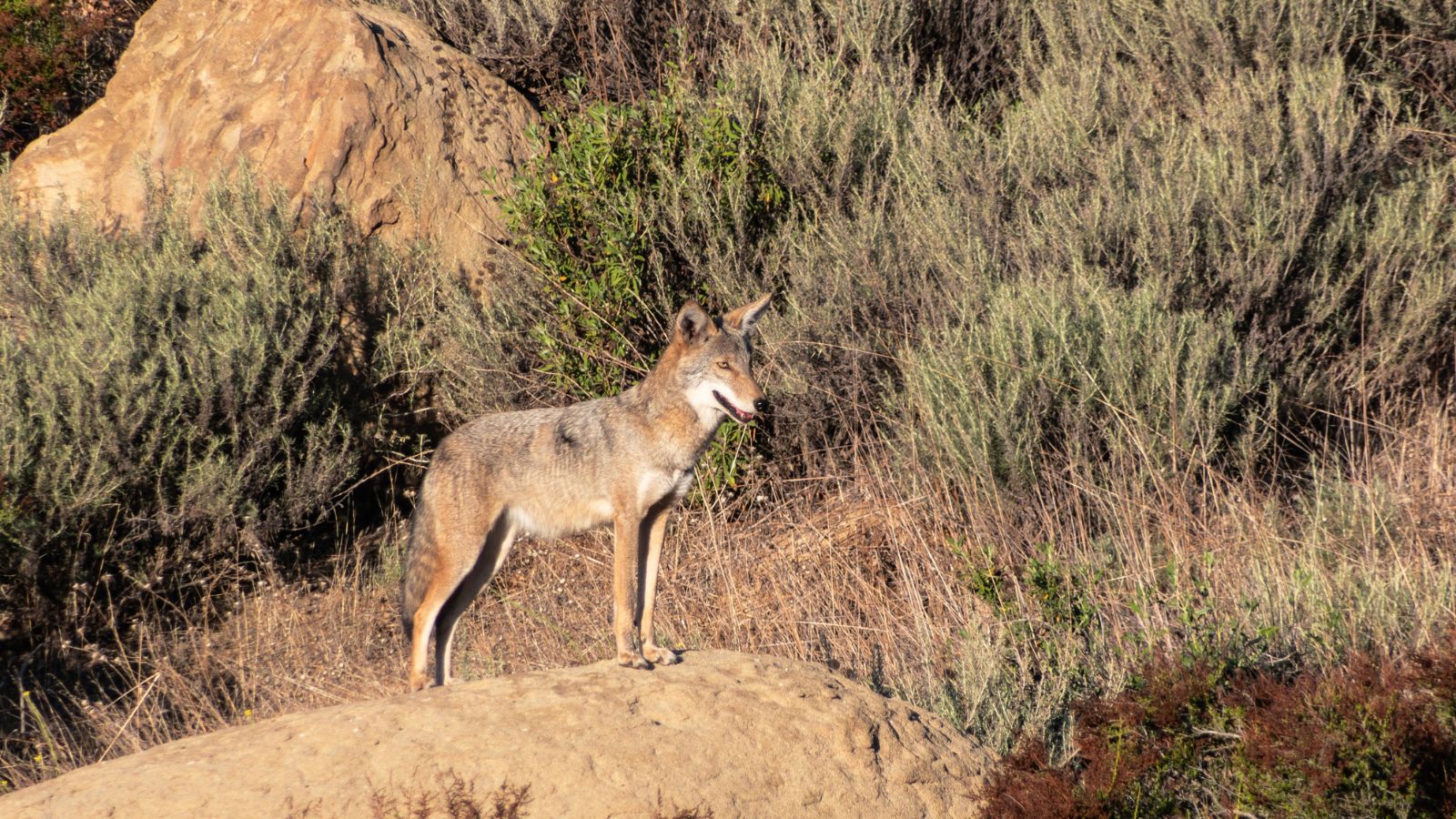
As the number of coyotes increases, so does the competition for food. Hungry coyotes are bolder and more likely to search for food near humans, such as raiding trash cans and stealing pet food. They’re also more aggressive, meaning that attacks are more likely.
They Disrupt Ecosystems
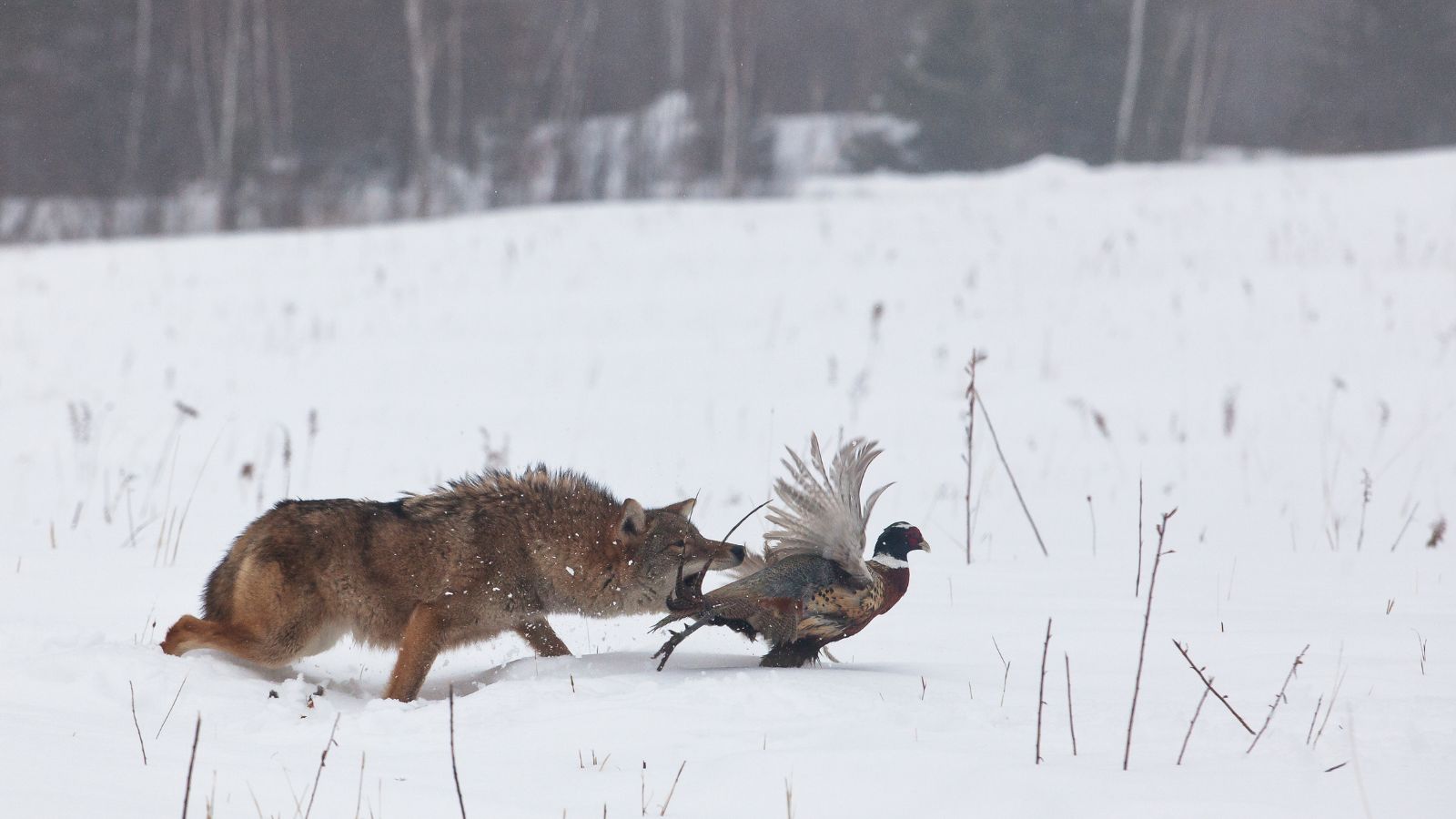
When there are too many coyotes in a local area, the ecosystem can be heavily disrupted. They will hunt birds and small mammals, which can put lots of wildlife and biodiversity at risk. Sometimes, increases in coyote populations are due to humans feeding them, so make sure you never do this.
They Cause Traffic Accidents
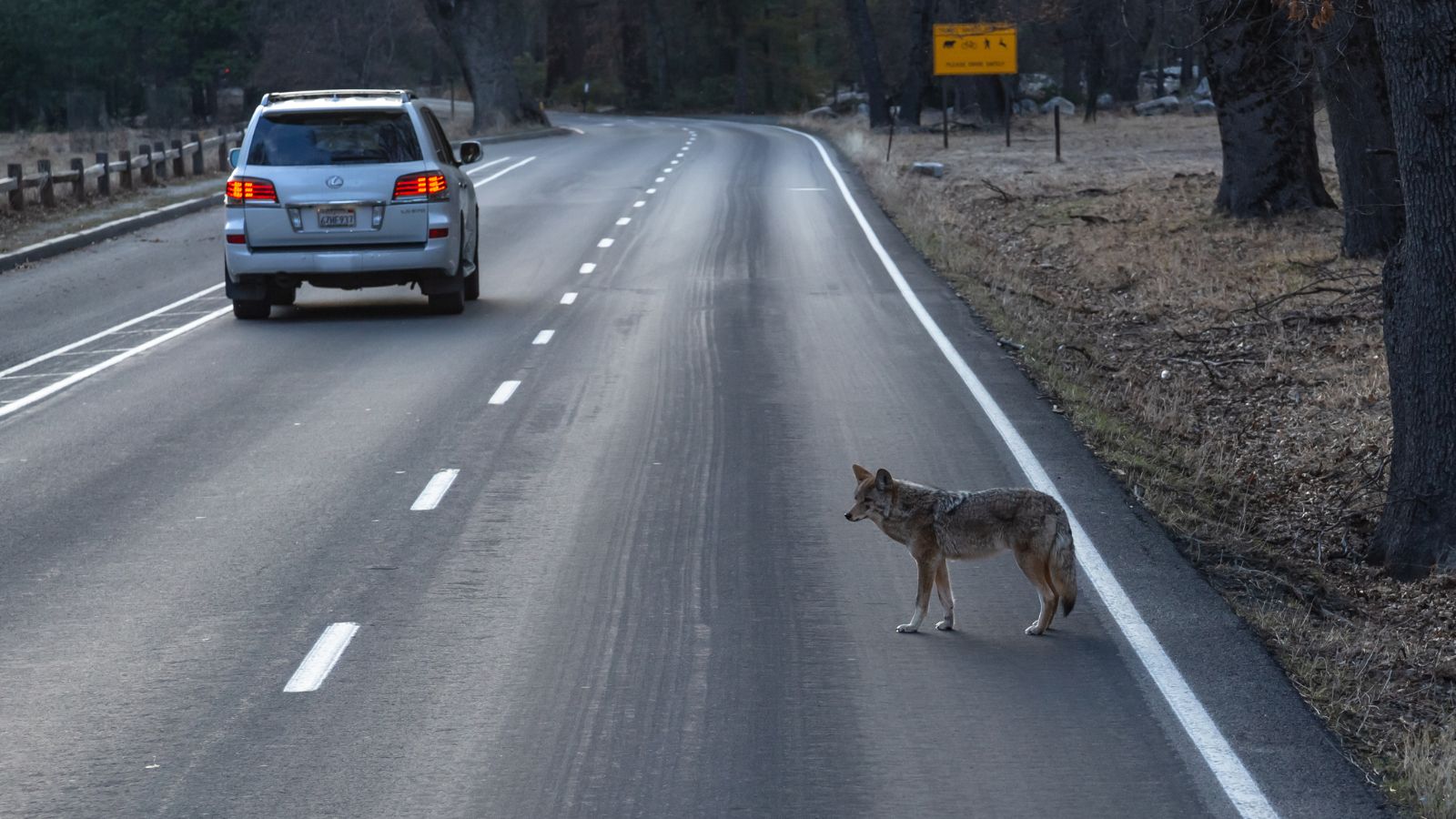
No one teaches a coyote how to cross the road, so when they decide to try it, accidents can happen. Swerving to avoid coyotes can cause crashes, and hitting a coyote could distract a driver and potentially make them lose control of their vehicle.
They’re Adapting To City Life
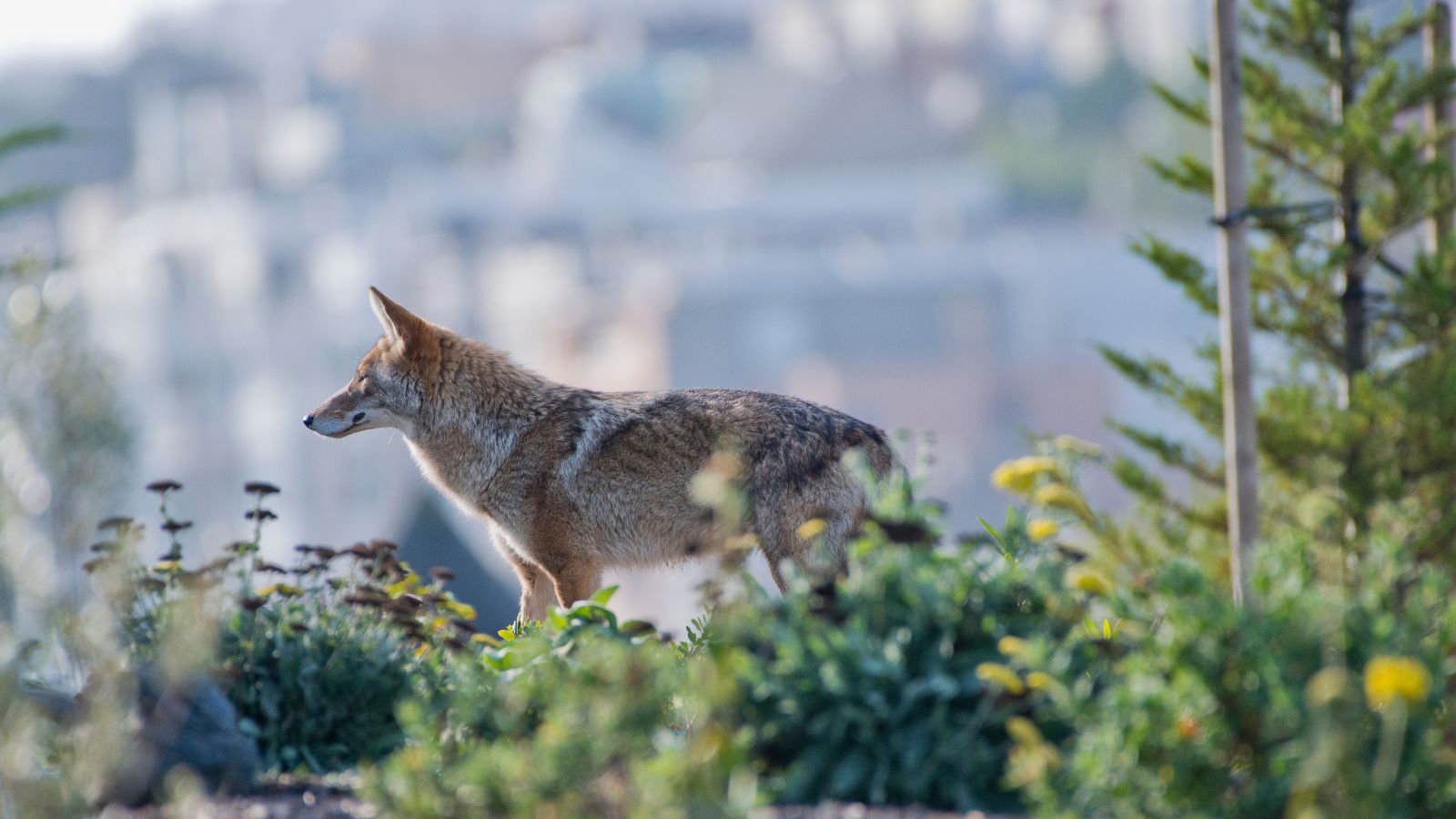
Live Science suggests that “as humans expanded their cities, coyotes learned to adapt to their newfound urban digs.” These adaptations mean coyotes are smarter and sneakier as they are learning to avoid traps and other deterrents. The more comfortable coyotes are in the city, the more dangerous they are to humans.
They Cause Disturbances In The Night
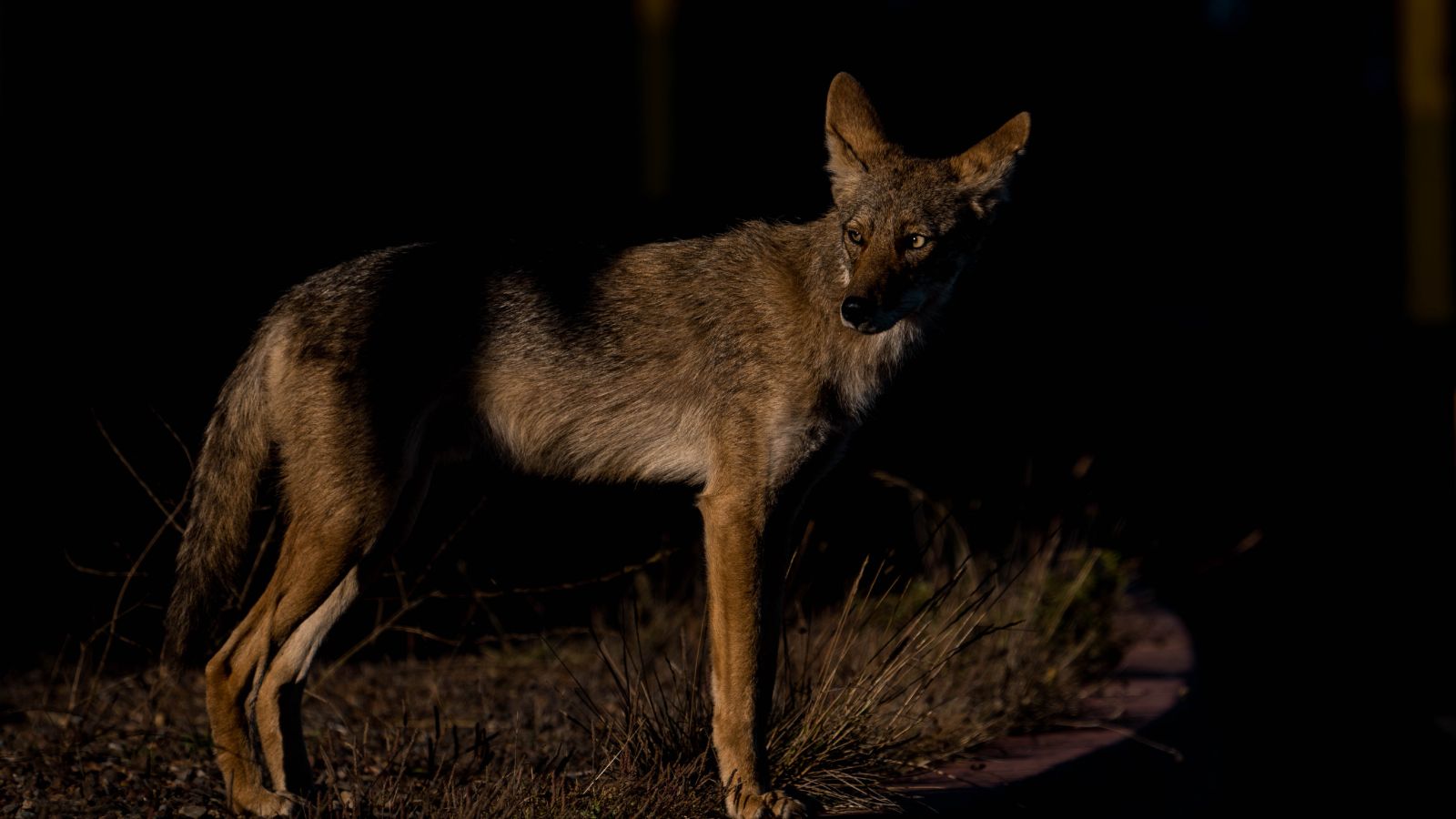
A coyote is most likely to visit your home or backyard during the night since they’re primarily nocturnal. This means that areas with lots of coyotes will become noisy when it goes dark because coyotes are hunting, rummaging through trash, and howling. This can cause sleep issues and stress for families.
Finding A Den Can Be Deadly
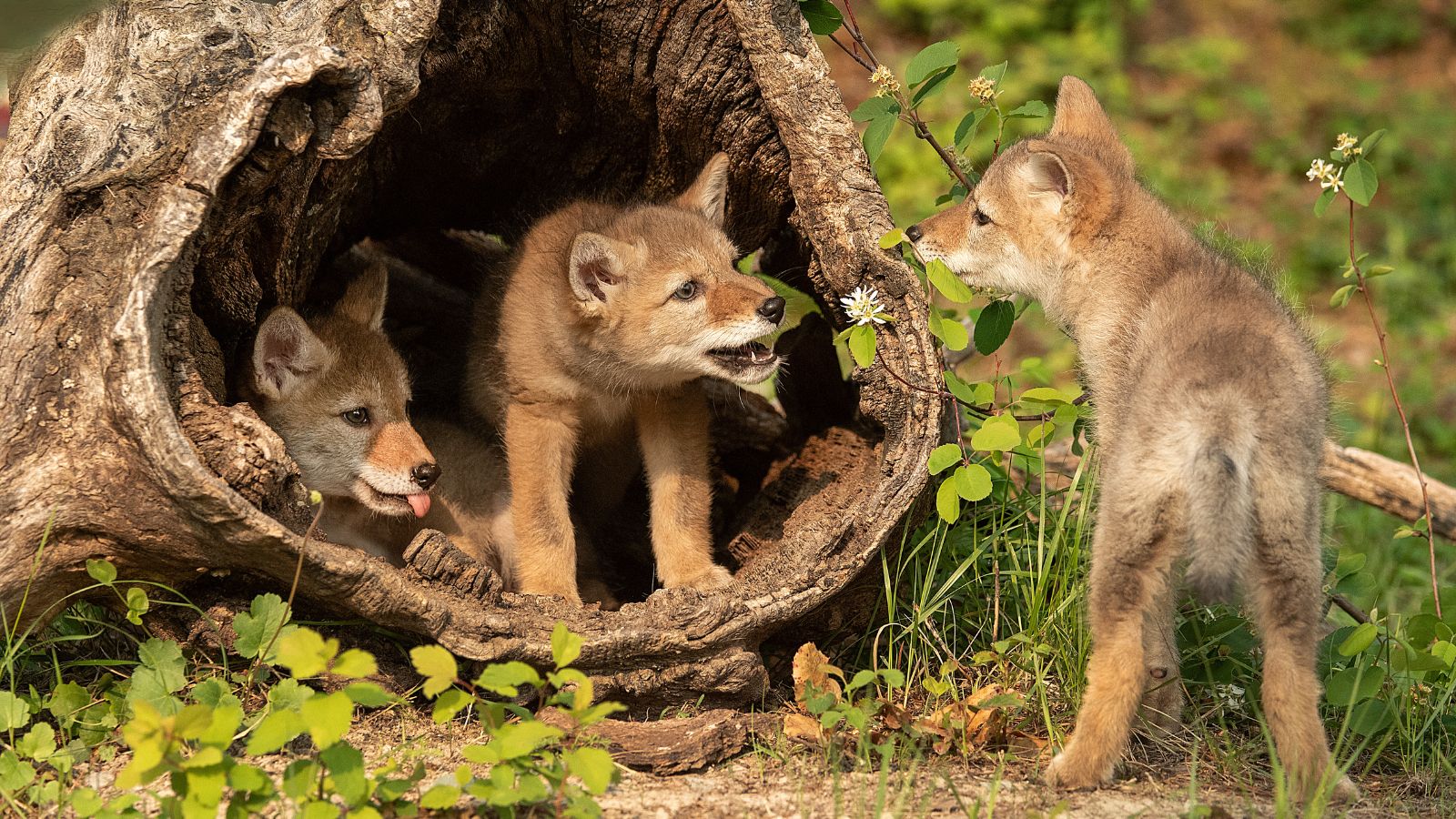
Coyotes are fiercely protective of their pups, but you might accidentally approach a coyote den without even realizing it. Getting too close to the den can cause a coyote attack, but with more and more coyotes living close to humans, the danger of finding a den is increasingly common.
They Can Be Unpredictable
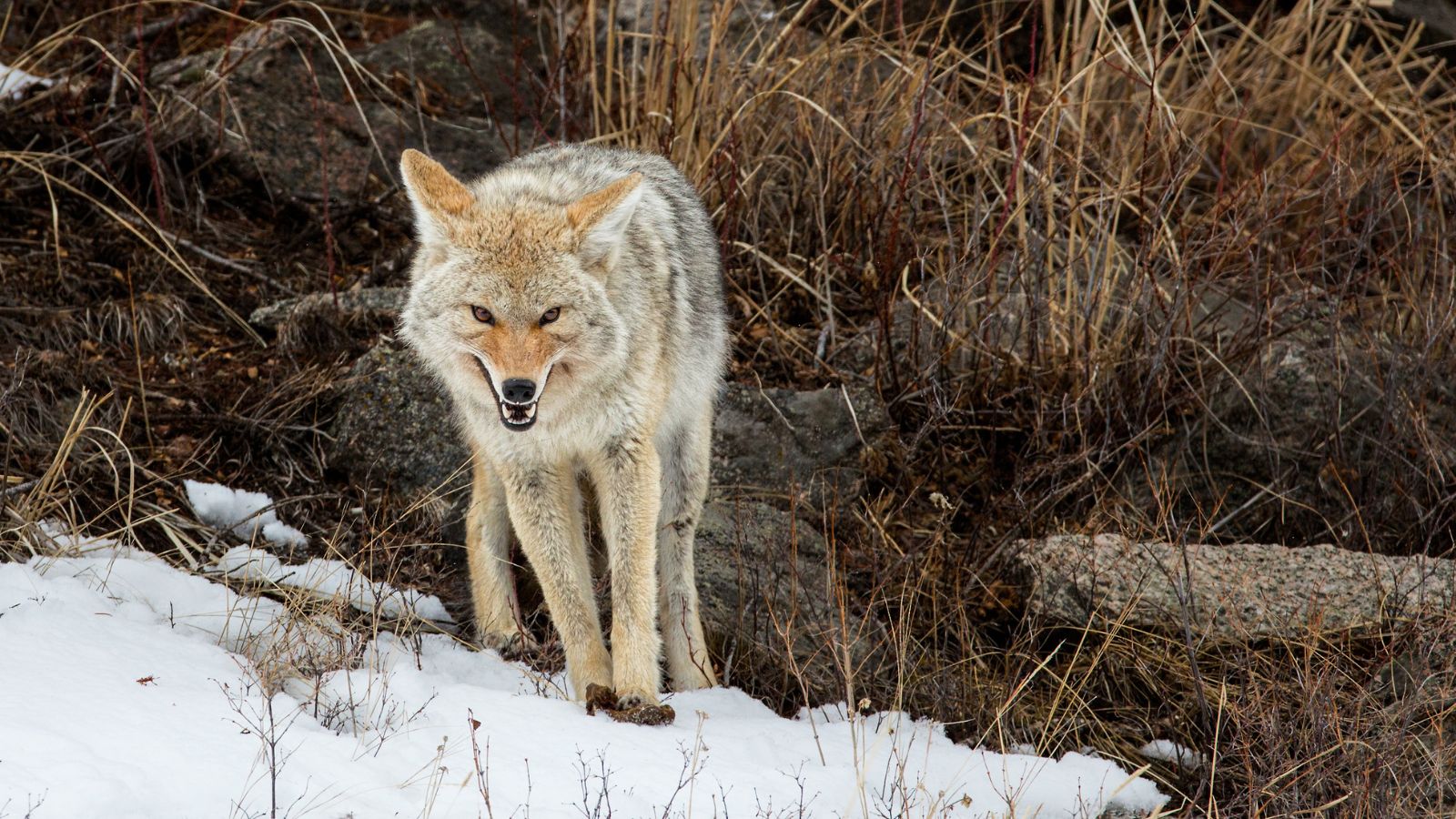
Like any other wild animal, you can never be too sure of a coyote’s next move. Sometimes, they’ll lose their fear of humans and get much bolder in their attempts to find food. While one coyote might run away from loud noises, another might attack in response to the threat.
They’re Scavengers
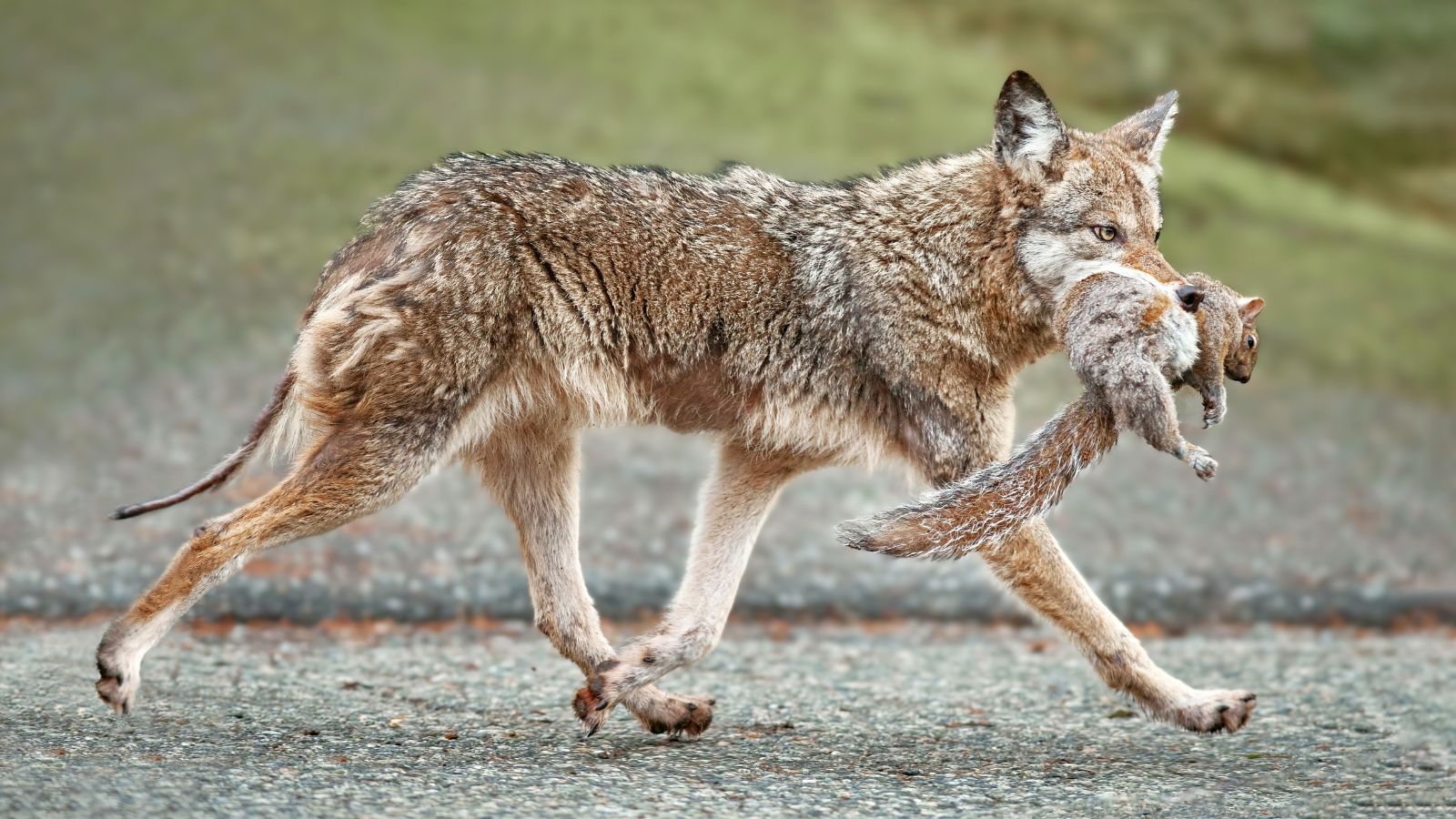
Anything you leave outside, intentionally or accidentally, can become a prize for a coyote. They’re scavengers who will try to eat anything they find, from garbage and pet food to fallen fruit – they’re not strict carnivores. You’ll need to properly dispose of and secure all your waste to be safe from coyote visits.
They’re Outcompeting Predators
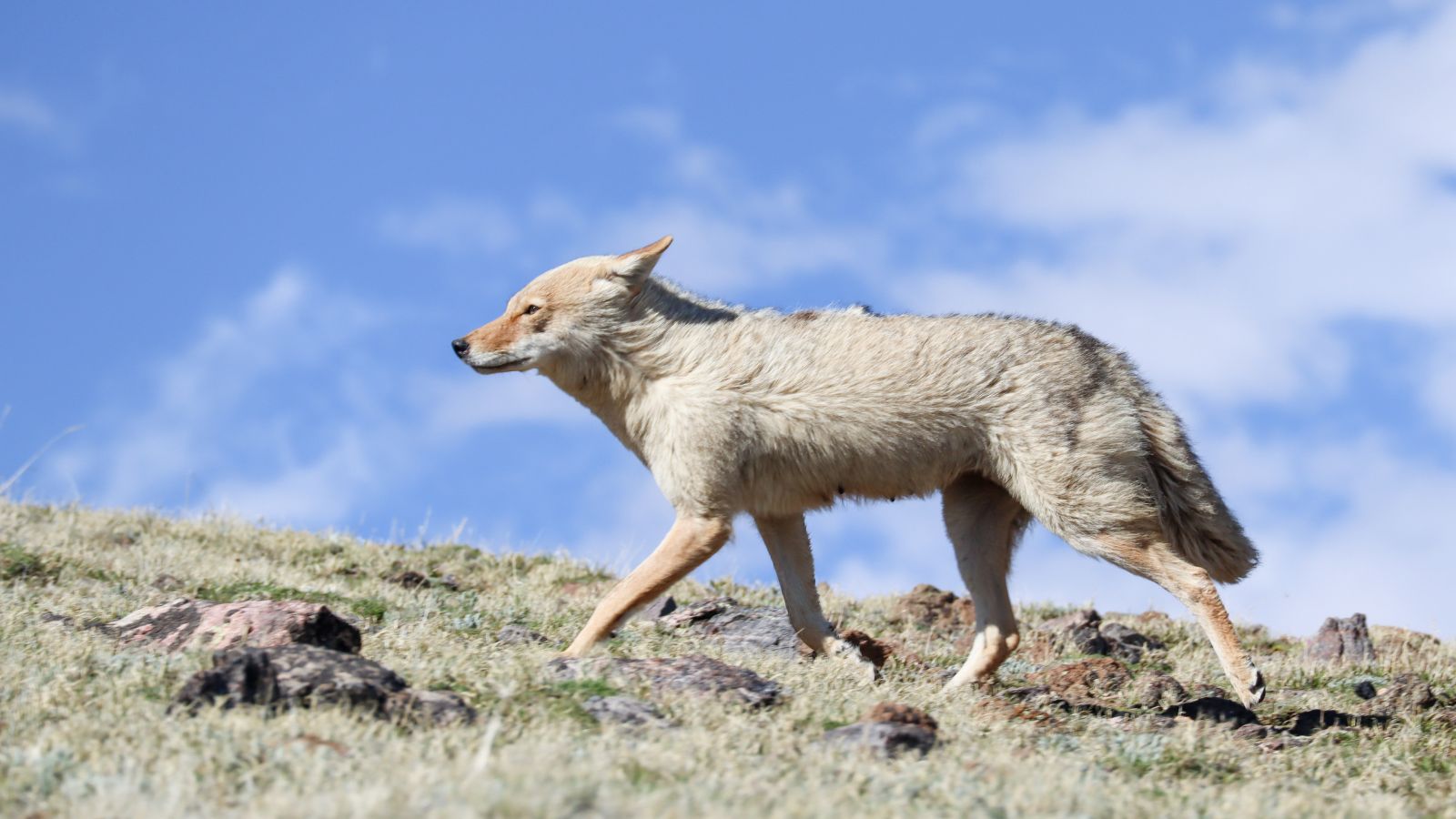
Coyotes compete with other predators, such as foxes and bobcats, for food, which can be destructive to local wildlife. In some cases, coyotes might even outcompete other predators, completely altering the ecosystem. This can be an issue in places where coyotes aren’t native predators.
It’s Challenging To Manage Them
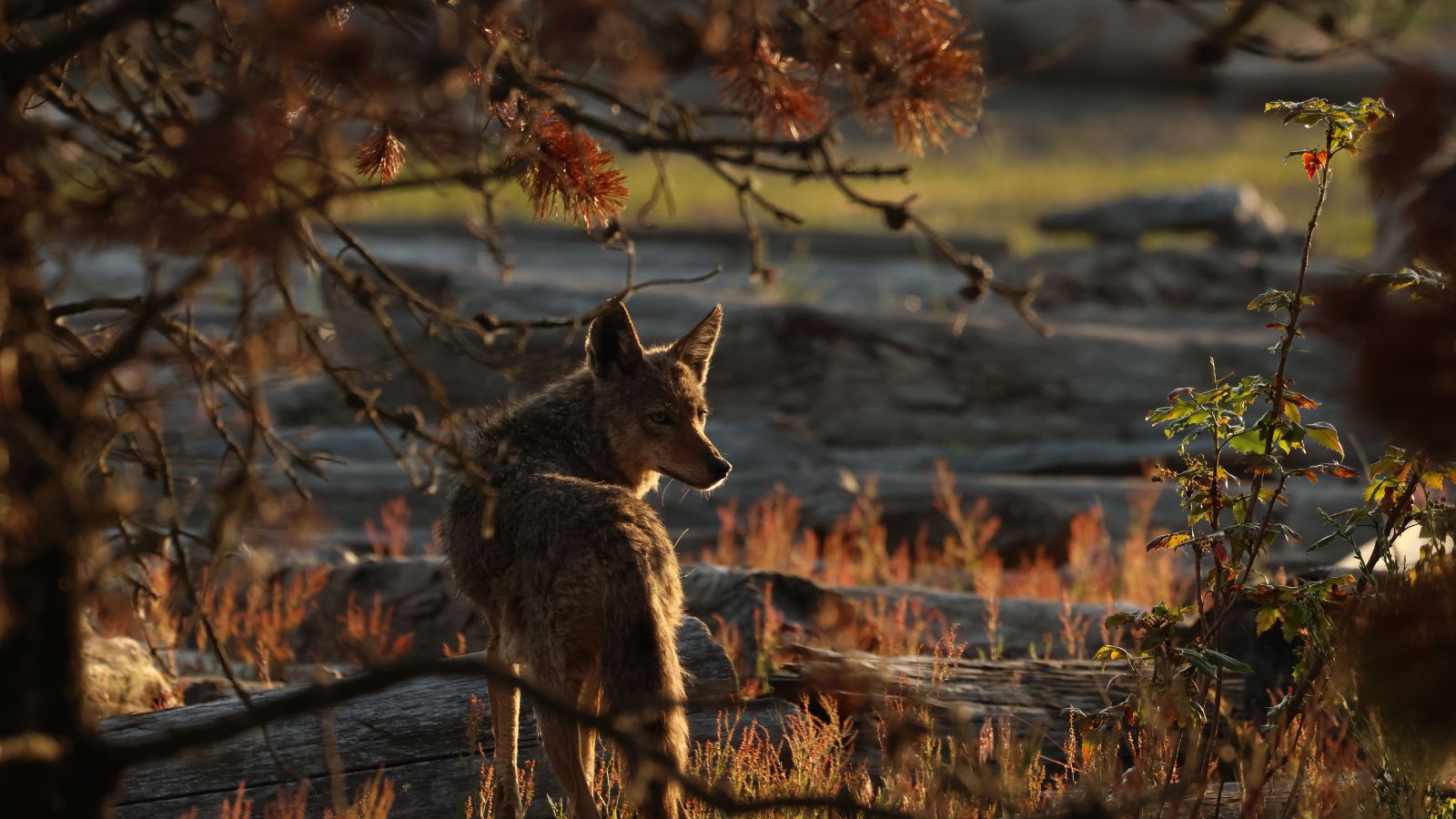
Managing coyote populations can be difficult, and people often make it harder for authorities to solve the problem. For example, CNN suggests that “wildlife control people say tossing rocks at coyotes would help reinstill their fear of people,” but many will feed coyotes instead.
Legal Issues
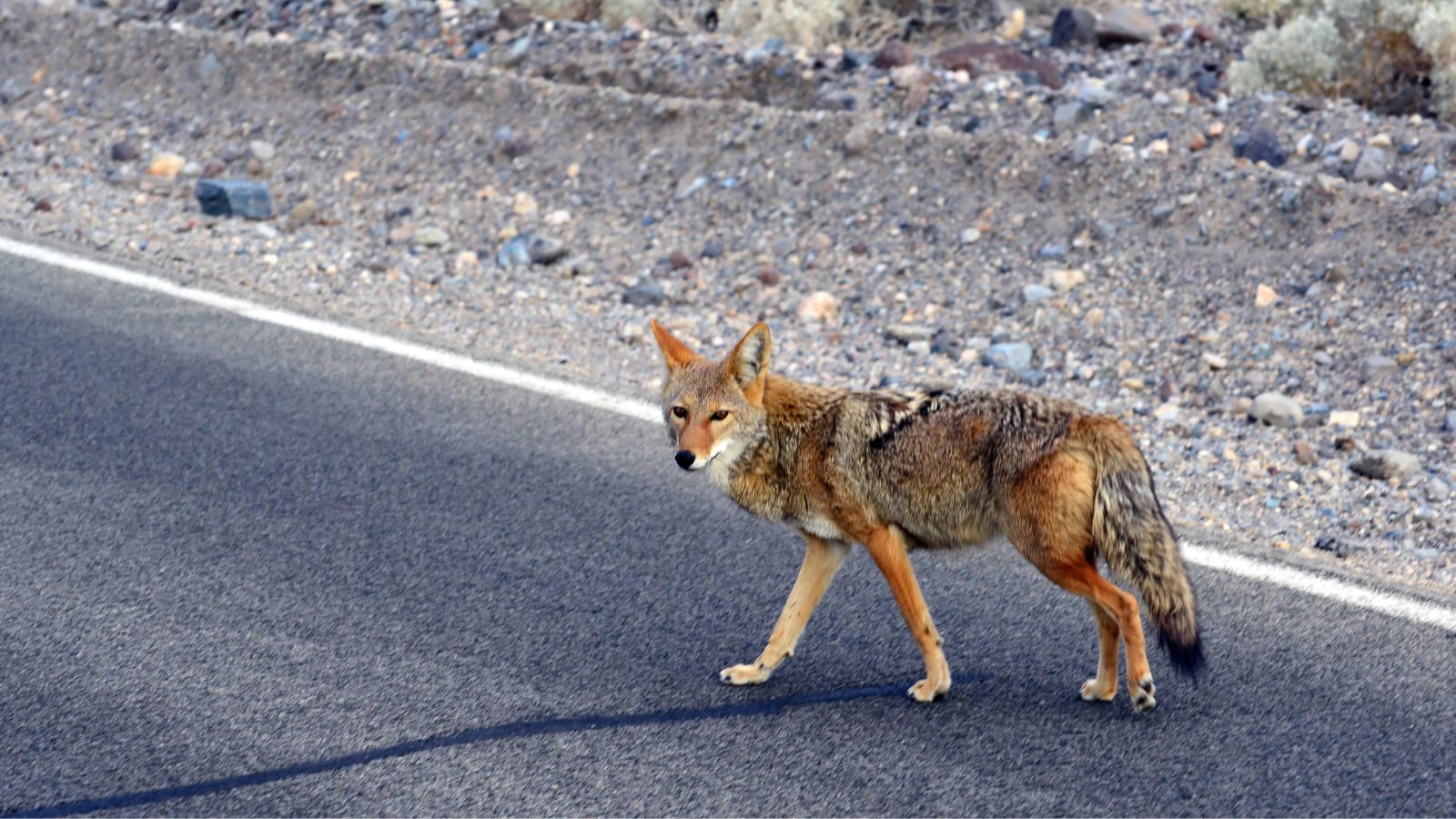
Finally, it’s important to consider that interacting with coyotes could have legal consequences, depending on where you live. Some states have laws and regulations in place about coyote management, so it’s important to check on them – or just stay away from the coyotes.
Up Next: 17 Commonly Believed Myths About The Wild West That Are Actually False

The Wild West was a peculiar place to live in, for sure. But are the stories of gunslinging cowboys and superhero sheriffs true? Here are 17 myths about the Wild West you should stop believing today.
17 COMMONLY BELIEVED MYTHS ABOUT THE WILD WEST THAT ARE ACTUALLY FALSE
18 Signs Someone Has a Personality Disorder

Personality disorders are underdiagnosed because they’re often misconceived as people ‘being difficult.’ Society also tends to focus more on the symptoms of anxiety and depression that accompany personality disorders, neglecting the other signs. To promote understanding, here are 18 signs someone isn’t being difficult but has a personality disorder.
18 SIGNS SOMEONE HAS A PERSONALITY DISORDER
20 Reasons Why Older Couples Are Ending Their Relationships

As our society modernizes and normalizes separation for couples who feel unhappy or stagnated, even older couples are choosing to end their marriages in greater numbers. While staying “till death do us part” and spending your golden years with a life-long partner may be more traditional, here are 20 reasons why older people might now be choosing divorce instead.

